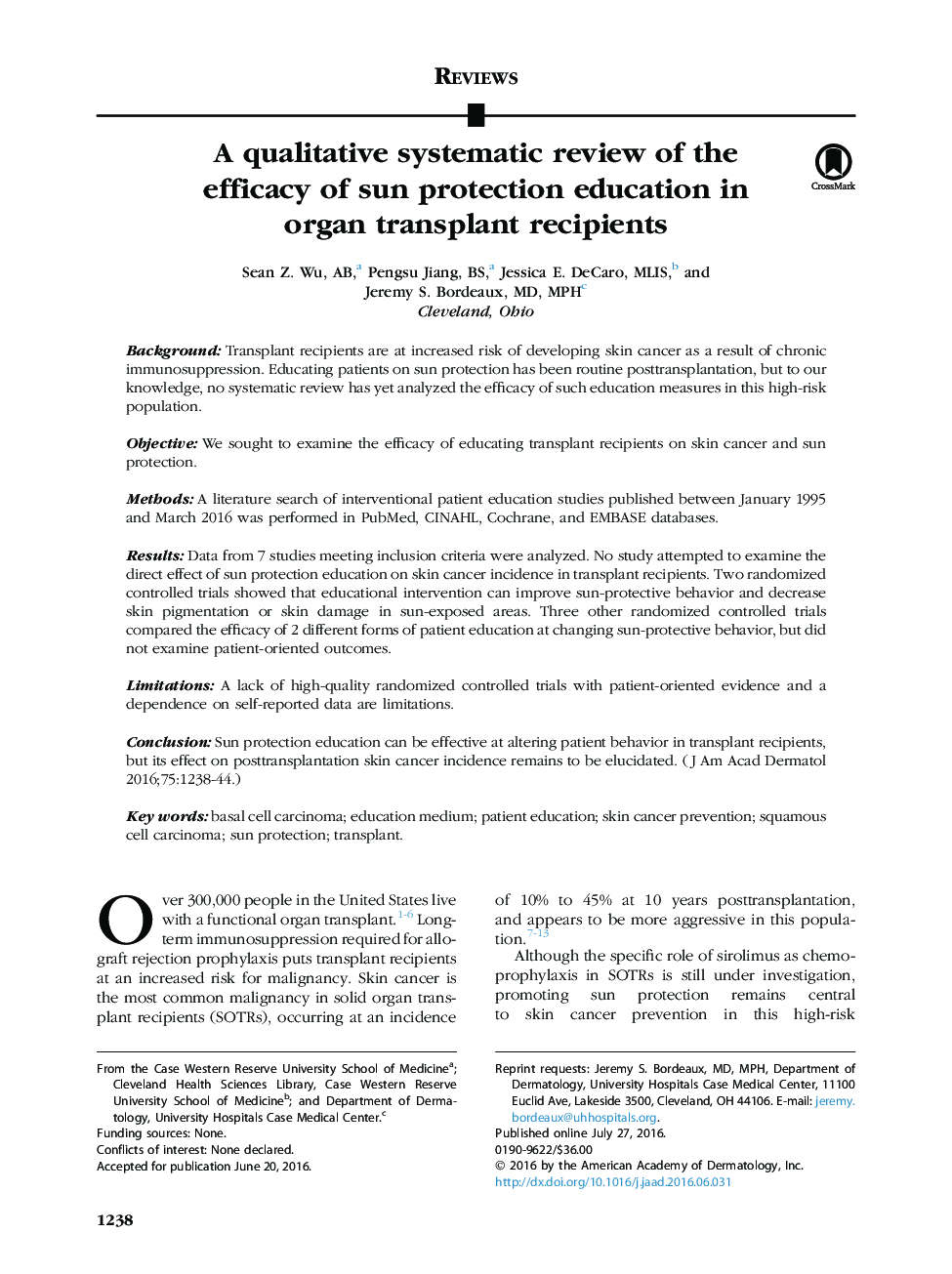| Article ID | Journal | Published Year | Pages | File Type |
|---|---|---|---|---|
| 5648204 | Journal of the American Academy of Dermatology | 2016 | 12 Pages |
BackgroundTransplant recipients are at increased risk of developing skin cancer as a result of chronic immunosuppression. Educating patients on sun protection has been routine posttransplantation, but to our knowledge, no systematic review has yet analyzed the efficacy of such education measures in this high-risk population.ObjectiveWe sought to examine the efficacy of educating transplant recipients on skin cancer and sun protection.MethodsA literature search of interventional patient education studies published between January 1995 and March 2016 was performed in PubMed, CINAHL, Cochrane, and EMBASE databases.ResultsData from 7 studies meeting inclusion criteria were analyzed. No study attempted to examine the direct effect of sun protection education on skin cancer incidence in transplant recipients. Two randomized controlled trials showed that educational intervention can improve sun-protective behavior and decrease skin pigmentation or skin damage in sun-exposed areas. Three other randomized controlled trials compared the efficacy of 2 different forms of patient education at changing sun-protective behavior, but did not examine patient-oriented outcomes.LimitationsA lack of high-quality randomized controlled trials with patient-oriented evidence and a dependence on self-reported data are limitations.ConclusionSun protection education can be effective at altering patient behavior in transplant recipients, but its effect on posttransplantation skin cancer incidence remains to be elucidated.
